The best and worst technological developments of 2019
From food deliveries via drones to foldable smartphones, here are the best and worst technological devices and developments of 2019.
National
Don't miss out on the headlines from National. Followed categories will be added to My News.
Flying coffee and hardware, smartphones that fold up to slip into a pocket, and more television than you could possibly stream dominated the tech scene in 2019; a year of eye-watering advances with glimpses of even more sci-fi-style innovations to come.
But this year also hosted Australia’s first ‘techlash’, demonstrating how careful we need to be when handing over our most private information to the world’s biggest companies.
We’ve rounded up the best and worst technological developments of the year, and you can bet that 2020 will deliver even more surprises.
THE BEST TECH OF 2019
THE 5G AGE
Australia, a nation of just 25 million people but even more mobile internet subscriptions, became the third nation in the world to get a 5G network, a year ahead of schedule.
The next-generation technology takes a huge step up from 4G, promising download speeds up to 20 faster, shorter delays, and the ability to connect many more people or devices at once.
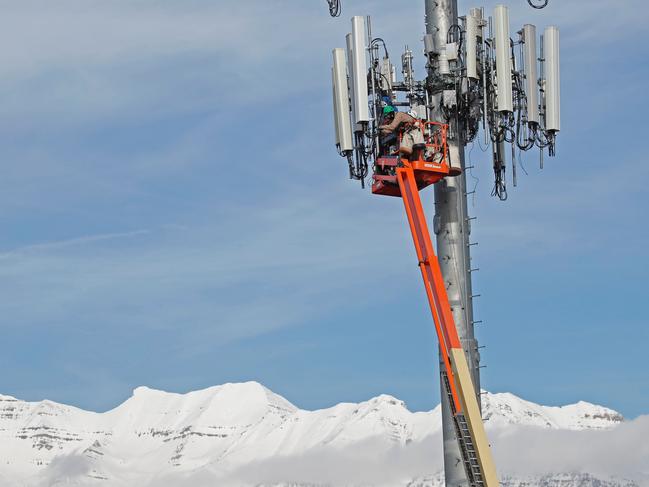
Australians also took advantage of some of the first 5G smartphones on the market from the likes of Samsung, Oppo and LG.
There were some notable holdouts though, and consumers should be careful what they sign up to: some telcos will charge a premium to access the speedy network in 2020.
FOLDING PHONES
2019 was supposed to be the year we all unfolded our smartphones like books and then bent and stashed them back into our pockets.
Big promises were made by Samsung and Huawei, who waged a fierce flexible screen war and later backed away when it all appeared too hard to create.
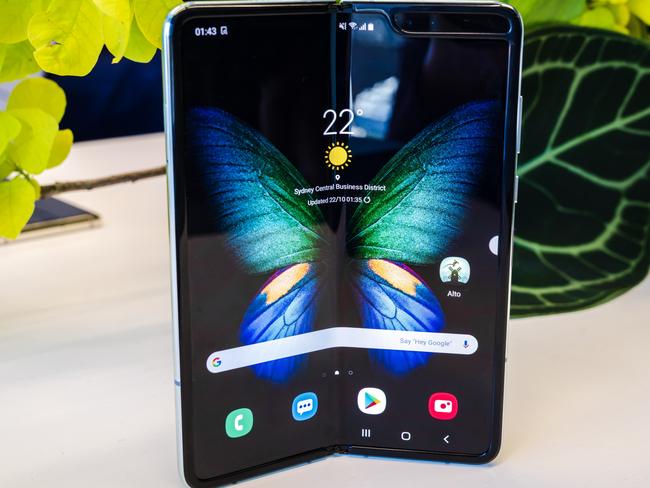
Samsung did come through with the goods in the Galaxy Fold, launched in Australia this October, and Microsoft and Motorola have already revealed plans to join them, arguably with more impressive, practical designs.
It could be the start of a beautiful tech-ship.
CLICKING AND STREAMING
Some Christmas gift-givers lamented the lack of DVDs this year as streaming entertainment has become the new norm.
TV streaming wars became even more rich and complicated this year as Apple+ landed in Australia, bringing Jennifer Aniston back to the small screen, and Disney+ followed, introducing the world to Baby Yoda.
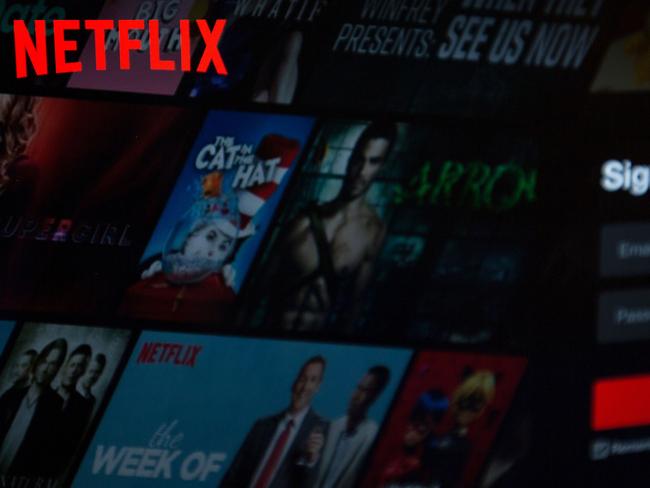
Aussie live sports service Kayo picked up hundreds of thousands of subscribers (and new sporting codes), while Netflix partnered with Foxtel to bring its exclusives into the menu of Foxtel iQ set-top boxes.
The only thing missing? An easy way to navigate every one of them at once.
MICRO MOBILITY
They’re zippy, fun, commuter vehicles to some, hazardous footpath hogs to others, but e-scooters made a serious impression on Australia this year.
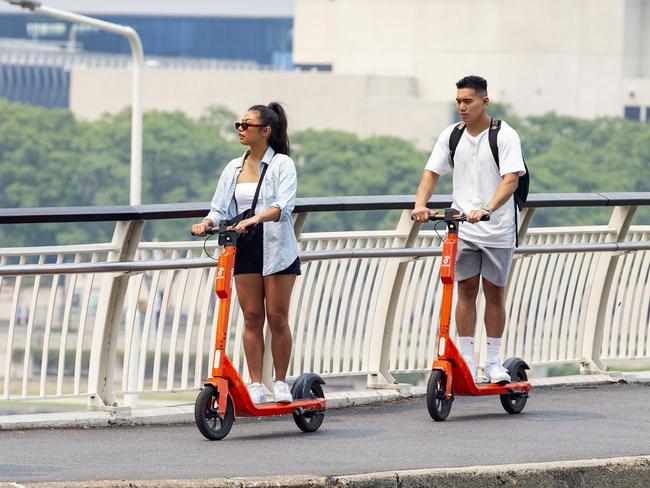
The nation’s capital okayed the use of electric scooters on footpaths and shared roadways just before Christmas, and Queensland has led the way on the technology, trialling hire e-scooters from two operators — Lime and Neuron — in Brisbane.
Debate continues about how to get riders to wear helmets, appropriate speed limits and injury levels, but more states are considering how to launch the technology in the coming months.
DRONE DELIVERIES
Australia quietly added a second state for drone deliveries this year, becoming just the third country to trial Google’s flying food service.
Fresh coffee, cooked chickens, and hammers started flying out to homes in select areas of Logan, in Brisbane’s north, after a successful trial in Canberra that is still delivering doughnuts and Mexican food to consumers within minutes.
With CASA’s ongoing approval, the service could quickly spread to new Aussie locations, taking more cars off the road and putting vehicles in the skies, Jetsons-style.
AND THE WORST TECH of 2019
AN AUSTRALIAN TECHLASH
Australia’s consumer watchdog investigated tech giants including Google and Facebook for 18 months and this year reported disturbing details on how our information was being exploited, proving our privacy had been seriously compromised and current laws did not protect us.

Recommendations to fix many issues posed by the domination of overseas tech firms included an overhaul of the Privacy Act, new ways to support local and social issues journalism, a digital platforms code of conduct and an independent ombudsman to quickly resolve disputes.
The Federal Government committed to addressing some of the reforms but privacy advocates, including the Consumer Policy Research Centre, say more work is needed “urgently” to stem the damage.
FREQUENT FACEBOOK FAILS
It copped the largest ever financial penalty for privacy failures — $US5 billion ($A7.2 billion) — but some still argued that Facebook got off lightly.
The fine from America’s Federal Trade Commission was just some of the bad news that buffeted Facebook a year after the Cambridge Analytica scandal made its two billion users question how their information was being exploited.

But the fine did not stop more scandals erupting as founder Mark Zuckerberg refused to ban political advertising despite clear evidence lies were getting through its filters, big-name companies pulled out of its Libra cryptocurrency plan, anti-vax content continued to plague the network, and new details emerged of how the social network tracks users’ locations regardless of their requests for privacy.
APPLE’S EYE-WATERING ACCESSORIES
Apple made some spectacular devices this year — iPhones with four cameras, noise-cancelling AirPods — but it also showed a spectacular lack of judgment with the higher than high price of some accessories.
The powerful Mac Pro, for example, must have even more powerful wheels given they cost an additional $640 to add to the machine. Yes, that’s just for the wheels.


And if you want to put Apple’s Pro Display on a stand — keeping the screen off the desk and at a comfortable viewing angle — it will cost you $1699.
Remember when monitors used to stand upright by design?
NBN DECEPTION
Australians have a lot of opinions about the $52 billion National Broadband Network, good and bad, but predatory or misleading marketing has tarnished everyone’s experiences with it this year.
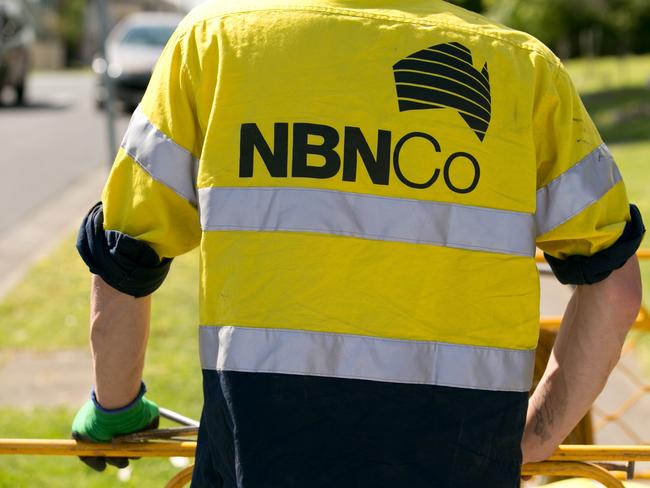
The Federal Court recently issued Optus with a $6.4 million fine for sending messages to more than 130,000 of its mobile customers, incorrectly warning their home broadband services would be “disconnected very soon”.
This came in addition to multiple cases in which internet providers charged consumers for broadband speeds their NBN connections could not deliver.
PHONE SCAMS
If you’ve received a phone call from “The Internet Department” or been called unexpectedly about “your recent car accident,” you’ll be familiar with the surge of scammers trying to con money and details from you this year.
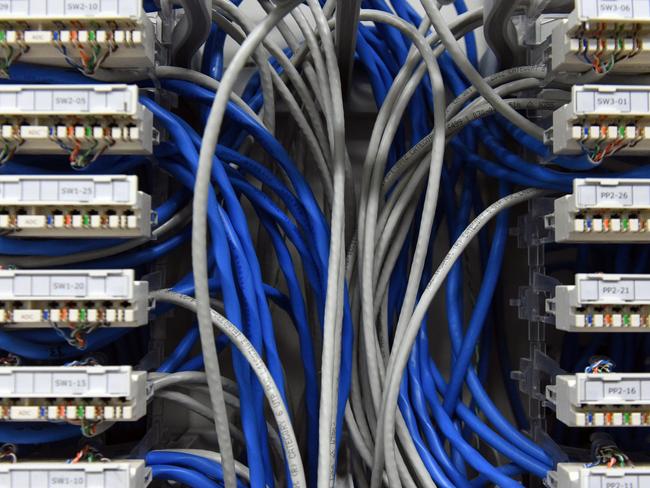
The Australian Communications and Media Authority recently announced calls from criminals pretending to be NBN representatives were by far the most common this year, and other culprits included non-existent marketers for the Do Not Call Register, and the so-called Chinese scam that attempts to extort money from victims by threatening arrest and deportation.
ACMA spokeswoman Fiona Cameron says recipients should avoid engaging with scammers so they don’t confirm their phone numbers are active.

